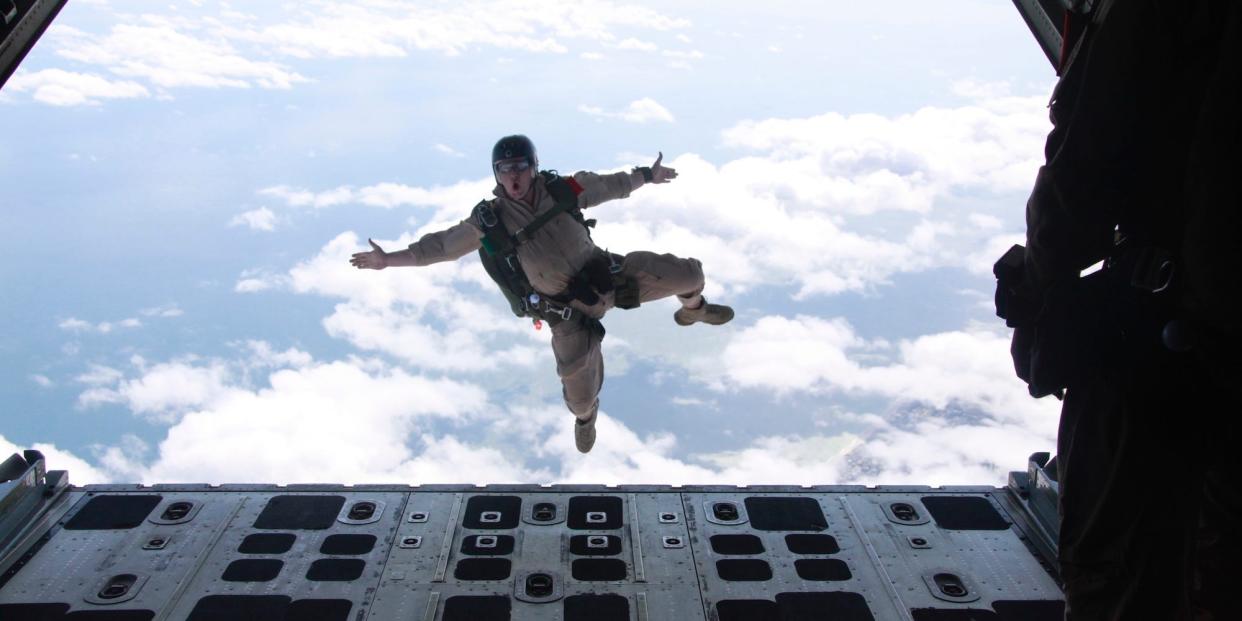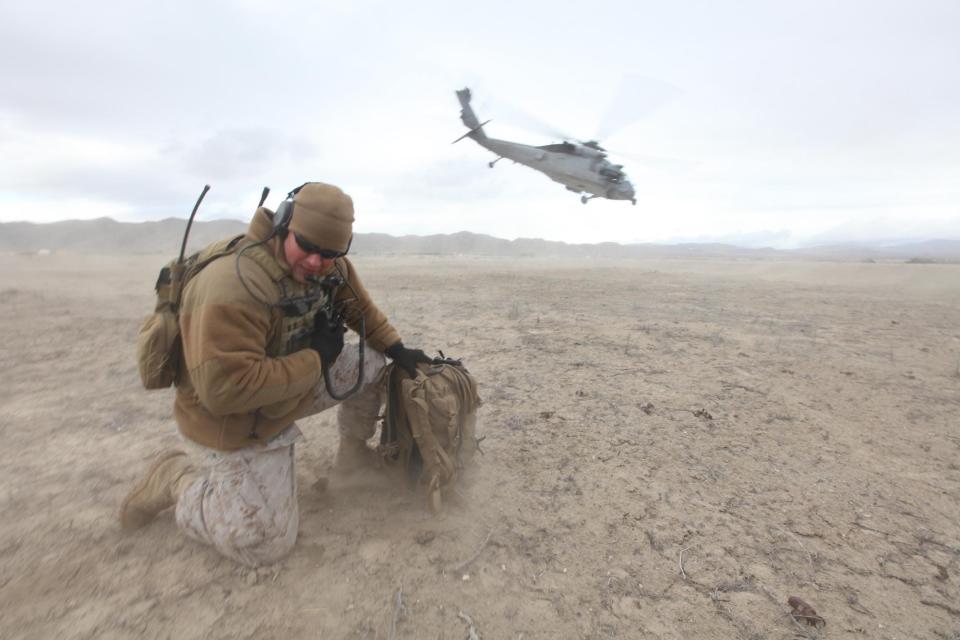The messy way the Marines joined US Special Operations Command

Marine Forces Special Operations Command, known as MARSOC, turned 15 years old in February.
Now part of US Special Operations Command, MARSOC's formation was prolonged by bureaucratic wrangling and turf wars.
This year marks the 15th anniversary of Marine Forces Special Operations Command (MARSOC).
Created on February 24, 2006, MARSOC is the Marine Corps' component of US Special Operations Command (SOCOM) and is composed of the Marine Raider Regiment, Marine Raider Support Group, and Marine Raider Training Center.
Marine Raiders, who trace their roots to World War II, primarily focus on direct action, such as ambushes and raids, as well as special reconnaissance and foreign internal defense - the training and advising of partner forces - but they can also conduct unconventional warfare (which primarily means supporting proxy forces) and counterterrorism operations, all with a varying degree of effectiveness.
MARSOC was created to fill what the Pentagon prudently saw as a future gap in special-operations forces. From the start, the US military effort in the Global War on Terror indicated that it would heavily rely on special-operations units.
The frantic insurgency in Iraq, the complicated fight in Afghanistan, and the various hotspots worldwide proved correct those who called for more commandos.
But disputes around MARSOC's creation linger for the command and could endanger its future.
'Every Marine is Special'

After Operation Eagle Claw, the failed rescue of American hostages in Iran in 1980, the Pentagon ordered the creation of a dedicated special-operations command for special-operations units from across the services.
Established in 1987, US Special Operations Command (SOCOM) brought together special-operations units such as the Army Green Berets, Navy SEALs, and Air Force Special Tactics Squadrons. Each service was invited to join with its special-operations units, but the Marine Corps turned down the offer.
The Marines already had some special-operations units, namely Marine Recon and Force Recon, which focused on special reconnaissance and direct action. They were considered special-operations units by everyone but the Corps, which saw them as specialized infantry rather than commandos, a reflection of the "Every Marine is special" mindset prevalent in the Marine Corps since its inception.
SOCOM and the Marine Corps went their separate ways until the terrorist attacks of September 11, 2001. Having seen the tactical and strategic value of special-operations units in the early days of the Global War on Terror, then-Secretary of Defense Donald Rumsfeld pushed for more commandos.
The Marine Corps begrudgingly created the Marine Corps Special Operations Command Detachment (Det One) in late 2002 as a study unit to see if Marines could fill special-operations roles.

However, since Reconnaissance Marines were already widely seen as a special-operations unit, or its Marine equivalent, the Corps' decision to set up Det One for further study, rather than incorporating Marines into SOCOM right away, is viewed by many as an attempt to stall the process until Pentagon leadership moved on or lost interest.
"The early [Det One] years were tough. In the beginning, we didn't have jack shit. No weapons, no ammo, no ranges, no mission, no nothing. Both the Corps and SOCOM shunned us, while the SEALs [Naval Special Warfare Command] wanted to control us. We were the red-headed stepchild," a former Reconnaissance Marine and Marine Raider told Insider.
Neither SOCOM nor the Marine Corps wanted a Marine special-operations command, but for different reasons.
SOCOM believed that the Marine Corps had gotten its chance to "operate" back in 1987; the Marine Corps believed it could do its own special-operations thing as good or even better than SOCOM and didn't want to lose quality Marines.
"What we did have, however, was a solid bunch of guys, about 100 operators and support Marines. All of them were as solid as they come because the leadership had handpicked them. We're talking senior Recon men with years of experience and numerous deployments under their belts. Same goes for the support and intel guys. Top-notch Marines on their respective fields who could probably outperform grunts on basic infantry skills because they went through much of our training," the former Recon Marine and Raider added.
Always faithful, always forward

Det One was a success and led to the creation of MARSOC in 2006. The 1st and 2nd Force Recon Battalions were disbanded, with most of their operators going to the newly established 1st and 2nd Marine Special Operations Battalions, with a third Raider battalion added later.
During the Global War on Terror, MARSOC contributed to the fight, but as the wars concluded or drew down, Marine Raiders have found themselves competing for missions and funds with units such as the Army Special Forces Regiment or the SEAL Teams.
Since MARSOC is the new kid on the block, it tends to be relegated to less active areas of operations - ironically, however, these regions can get quite busy, and Marine Raiders have participated in some neat operations, such the response to al-Shabab's attack on the Kenyan military base at Manda Bay in January 2020.
Some have called for MARSOC's deactivation, citing the Corps' limited resources and demands elsewhere. For now, it seems that the 15-year-old MARSOC will make it into adulthood. Judging from the past, that future may be rocky.
Stavros Atlamazoglou is a defense journalist specializing in special operations, a Hellenic Army veteran (national service with the 575th Marine Battalion and Army HQ), and a Johns Hopkins University graduate.
Read the original article on Business Insider

